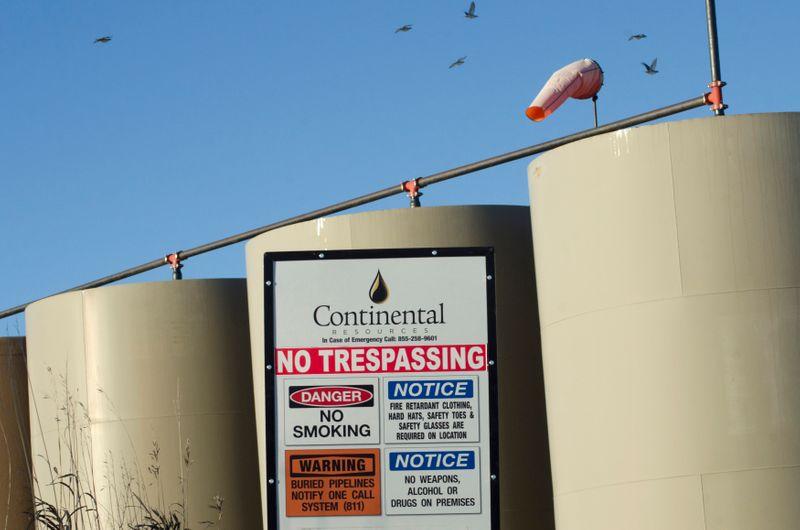Continental Resources, one of the largest U.S. shale oil producers, on Wednesday urged North Dakota energy regulators to intervene to help stabilize the state’s oil market through steps such as limiting output or restricting flaring of unwanted natural gas.

Continental, the state’s largest producer, argued at a hearing that operators are hurting even though state production is down more than half a million barrels per day (bpd) since prices crashed in March.
“North Dakota can be a leader as far as action is concerned,” said Blu Hulsey, Continental’s vice president of government relations, adding the state does not need “to take large action to make a difference.”
Hulsey said that even at reduced levels, the state’s production was exceeding “reasonable market demand.”
However, Dean Foreman, chief economist for trade group American Petroleum Institute, asked regulators to resist the urge to intervene in markets. Supply and demand are responding to current market conditions, he said.
North Dakota, the U.S. state that ranks No. 2 in terms of oil production, is the third state to hold a hearing and evaluate options for helping the ailing industry. Oil production in the state has fallen by 510,000 bpd since prices crashed, according to the latest report from its regulator.
Texas earlier this month dismissed a motion to implement output limits, while Oklahoma approved an emergency order in April calling some oil production in the state waste, a move that allows some producers to shut wells without losing leases.
Oklahoma has not yet decided whether to approve two separate applications requesting regulatory intervention to help stabilize markets, including a mandating output limits.
In April, North Dakota regulators weighed financial help for the state’s oil industry, including paying operators to restart wells. The commissioners at the time pushed back on the idea of limiting production, calling it “a bridge too far.”
[contextly_sidebar id=”sZ97iFGSZwTuwW2BfLafudigamcVGdmO”]





